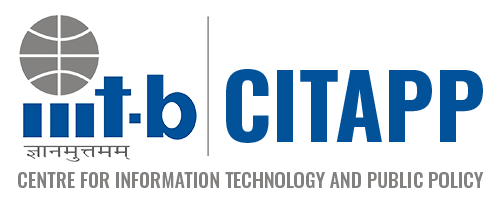The Center for Information Technology and Public Policy (CITAPP)
International Institute of Information Technology Bangalore (IIITB)
organized a talk titled
Moving Beyond Flexibility in Knowledge Work
by
Ingrid Erickson
Syracuse University
2:00 pm – 3:30 pm on 9 January 2020 (Thursday)
Venue: R106, IIITB campus
26/C, Electronic City, Hosur Road, Bangalore
About the talk: India is currently witnessing an unemployment crisis, with youth unemployment slumping phenomenally. Media debates on unemployment emphasise the role of demonetisation and GST, without paying sufficient attention to technology and its impacts on the future of work in India. India is not alone in witnessing this slump in jobs, it is a phenomenon that is a global one, that impacts both developed and developing economies. Technology plays a vital role in this crisis, with differential impacts in different countries. In developing economies, the potential for technology to take away routine jobs is much higher with greater impacts on a higher number of low skilled workers. Organisations such as the ILO have to thus respond to this global employment crisis.
Speaker Bio: Ingrid Erickson is a scholar of work and technology. She received her PhD from the Center for Work, Technology and Organization in the Department of Management Science and Engineering at Stanford University. She is currently an Assistant Professor at the School of Information Studies at Syracuse University in Syracuse, New York. Her research focuses on the future of work, both in the way that mobile devices and ubiquitous digital infrastructures encourage the development of new sociotechnical practices and the adoption of artificial intelligence in enterprise contexts affect workers’ autonomy and skill development. She is Co-PI of the research coordination network “Work in the Age of Intelligent Machines (WAIM)” supported by the National Science Foundation.
